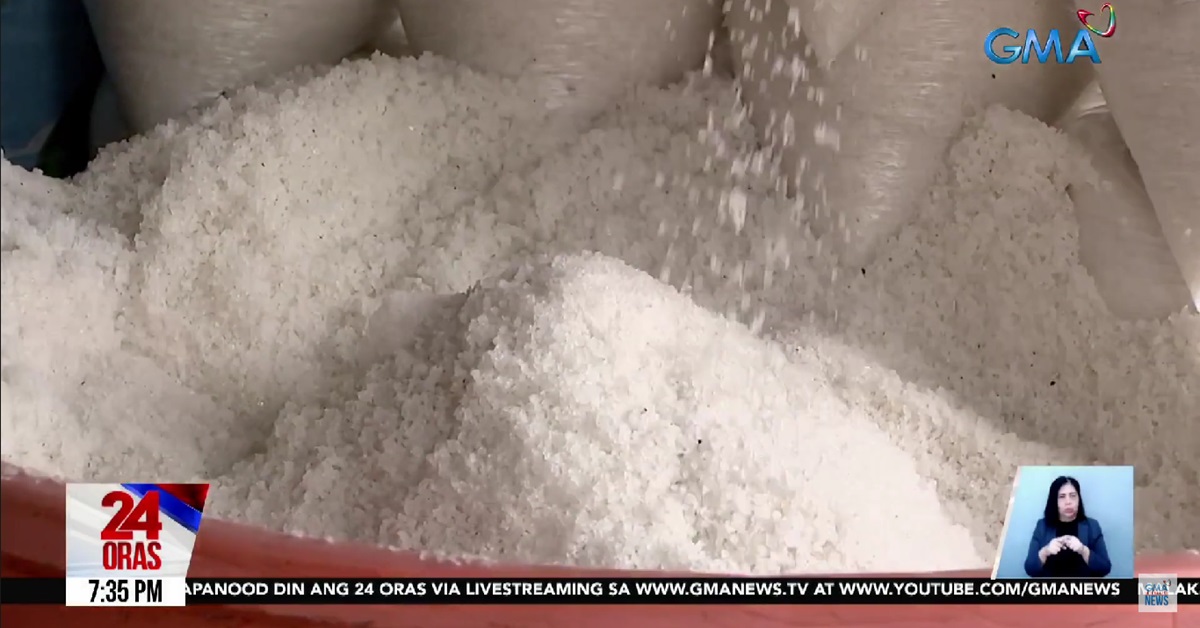How iodized salt can help prevent miscarriage, brain damage

BAGUIO CITY— The National Nutrition Council (NNC) on Wednesday explained how moderate intake of iodized salt can help address iodine deficiency disorders (IDD) which can cause intellectual disability, infertility, and even miscarriage among women.
At a media conference here, NNC Cordillera Administrative Region (CAR) nutrition program coordinator Bella Basalong said that addressing IDD, particularly among women of reproductive age, pregnant women, and lactating women is crucial in preventing congenital abnormalities and improving the overall health of both the mother and acting child.
“We use iodine to improve the thyroid function of the fetus and to decrease infant mortality, prevent neurocognitive impairment, and prevent irreversible impairment of the womb,” she said.
“‘Yung iodine, it's actually part of our thyroid hormone, the production ng ating thyroid hormone din… Ang function kasi ng thyroid hormone natin, it regulates ‘yung ating fertility, ‘yung ating growth, mental development,” she added.
(Iodine is actually part of our thyroid hormone, the production of our thyroid hormone. The function of our thyroid hormone is to regulate our fertility, our growth, and mental development.)
Citing the Expanded National Nutrition Survey in 2018-2019, Basalong said that 1 out of 5 Filipino pregnant lactating mothers suffers from iodine deficiency.
With this, she said that IDD continues to pose a significant public health concern in the country, especially among young people and pregnant women.
She also noted that IDD is the single most common cause of preventable mental retardation, brain damage, and mental suppression.
“If a person lacks iodine, meron siyang effect [it has effect] on our brain development, as well as our physical development,” the NNC official said, pointing out that iodine boosts learning and intelligence.
To address all these health concerns, Basalong said that iodized salt—which is the cheapest source of iodine—has to be more accessible in the country and Filipinos need to incorporate it in their meals.
So far, she said that only 33.2% or 3 out of 10 Filipino households use iodized salt, which is still very far from the NNC’s target of at least 90%.
“Ang gusto sana natin, 90% of the households will use adequately iodized salt or ‘yung tinatawag natin na may 15 parts per million ang iodine do’n sa asin,” she said.
(We want 90% of the households to adequately use iodized salt or 15 parts per million of iodine in the salt.)
“Kailangan talaga na accessible ang iodine natin. ‘Yun ‘yung pinaka-cheapest na source of iodine. Kung wala kang pera, at least kung may iodized salt ka, kapag nagutom, pwedeng gamitin ‘yan,” she added.
(Iodized salt really needs to be accessible. That is the cheapest source of iodine. If you don't have money, at least if you have iodized salt, you can use that when you're hungry.)
In March this year, President Ferdinand ''Bongbong'' Marcos Jr. signed Republic Act 11985 or the Philippine Salt Industry Development Act which aims to strengthen and revitalize the country's salt industry.
Among the salient features of this law is the creation of a Philippine Salt Industry Development Roadmap to ensure the attainment of its objectives, which are aligned with the objectives and continued implementation of Republic Act No. 8172, or “An Act for Salt Iodization Nationwide (ASIN). — RSJ, GMA Integrated News




